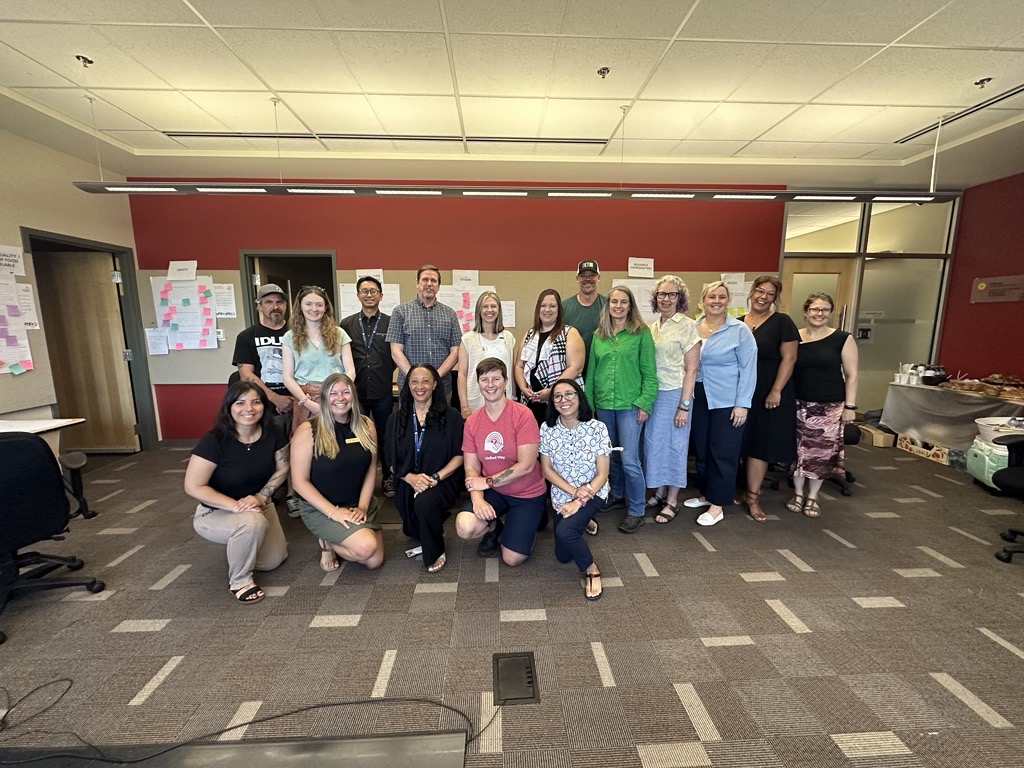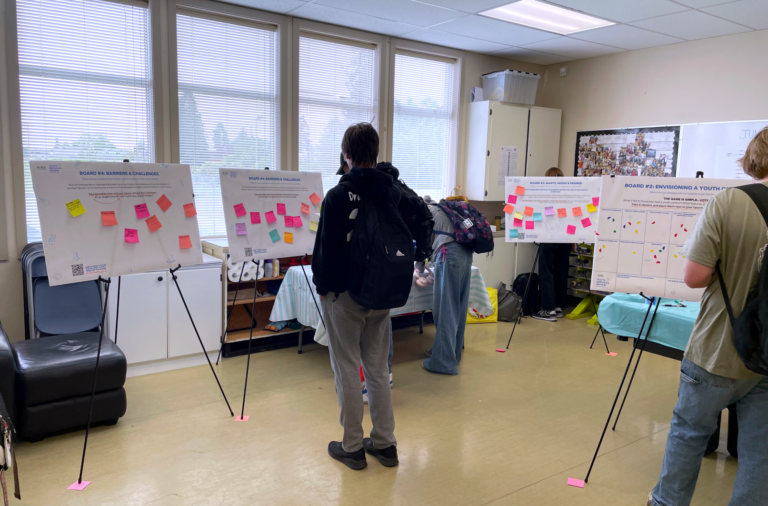
City of Kelowna - 2024
Kelowna Food Innovation Project
Kelowna Food Innovation Project
Urban Matters, in partnership with the City of Kelowna and the United Way BC, spearheaded the Kelowna Food Innovation Project (KFIP) to tackle rising food insecurity in the Central Okanagan, where food prices have surged by nearly 10% in recent years. This has placed immense pressure on residents, leading to a significant 134% increase in the number of clients at the Central Okanagan Food Bank between 2021 and 2024, including many dual-income families and newcomers requiring culturally appropriate food and translation services. Against this backdrop, it was identified that there was a need for greater collaboration among food system stakeholders, who previously operated in silos, causing service inefficiencies and duplication. Leveraging the Central Okanagan Poverty & Wellness Strategy, Urban Matters sought to foster collective action and cohesive problem-solving.
To achieve this, Urban Matters established a KFIIP Systems Leaders Table, assembling a diverse group of representatives from non-profits, local government bodies, and funding organizations. Over eight months, this group convened seven times to map out and address the entire food system, from distribution to consumption and waste management. Urban Matters facilitated these sessions using a collective impact approach and layering in design-thinking, focusing on empathy and engagement with those who had faced food insecurity within the past year. Through guided workshops and collaborative discussions, the group defined critical issues impacting food access and sustainability, surfacing key themes such as affordability, cultural needs, and awareness. They led the group to define the key problems and to ideate potential solutions. This process aimed to deeply understand the local food security system and generate three impactful prototype project ideas to address these challenges, which can be tested within the community.
The final three prototype projects poised for community impact were: an Indigenous-led Garden promoting culturally relevant food production, a community food resource hub to improve food literacy, and a low-cost grocery store to provide affordable options for at-risk populations. Urban Matters outlined a roadmap for these projects, emphasizing the formation of dedicated working groups, an inclusive governance structure involving community voices, and a comprehensive work plan with clear success metrics. This foundational work has set the stage for sustainable, collaborative solutions aimed at transforming food security in the Central Okanagan.
Urban Matters, in partnership with the City of Kelowna and the United Way BC, spearheaded the Kelowna Food Innovation Project (KFIP) to tackle rising food insecurity in the Central Okanagan, where food prices have surged by nearly 10% in recent years. This has placed immense pressure on residents, leading to a significant 134% increase in the number of clients at the Central Okanagan Food Bank between 2021 and 2024, including many dual-income families and newcomers requiring culturally appropriate food and translation services. Against this backdrop, it was identified that there was a need for greater collaboration among food system stakeholders, who previously operated in silos, causing service inefficiencies and duplication. Leveraging the Central Okanagan Poverty & Wellness Strategy, Urban Matters sought to foster collective action and cohesive problem-solving.
To achieve this, Urban Matters established a KFIIP Systems Leaders Table, assembling a diverse group of representatives from non-profits, local government bodies, and funding organizations. Over eight months, this group convened seven times to map out and address the entire food system, from distribution to consumption and waste management. Urban Matters facilitated these sessions using a collective impact approach and layering in design-thinking, focusing on empathy and engagement with those who had faced food insecurity within the past year. Through guided workshops and collaborative discussions, the group defined critical issues impacting food access and sustainability, surfacing key themes such as affordability, cultural needs, and awareness. They led the group to define the key problems and to ideate potential solutions. This process aimed to deeply understand the local food security system and generate three impactful prototype project ideas to address these challenges, which can be tested within the community.
The final three prototype projects poised for community impact were: an Indigenous-led Garden promoting culturally relevant food production, a community food resource hub to improve food literacy, and a low-cost grocery store to provide affordable options for at-risk populations. Urban Matters outlined a roadmap for these projects, emphasizing the formation of dedicated working groups, an inclusive governance structure involving community voices, and a comprehensive work plan with clear success metrics. This foundational work has set the stage for sustainable, collaborative solutions aimed at transforming food security in the Central Okanagan.



